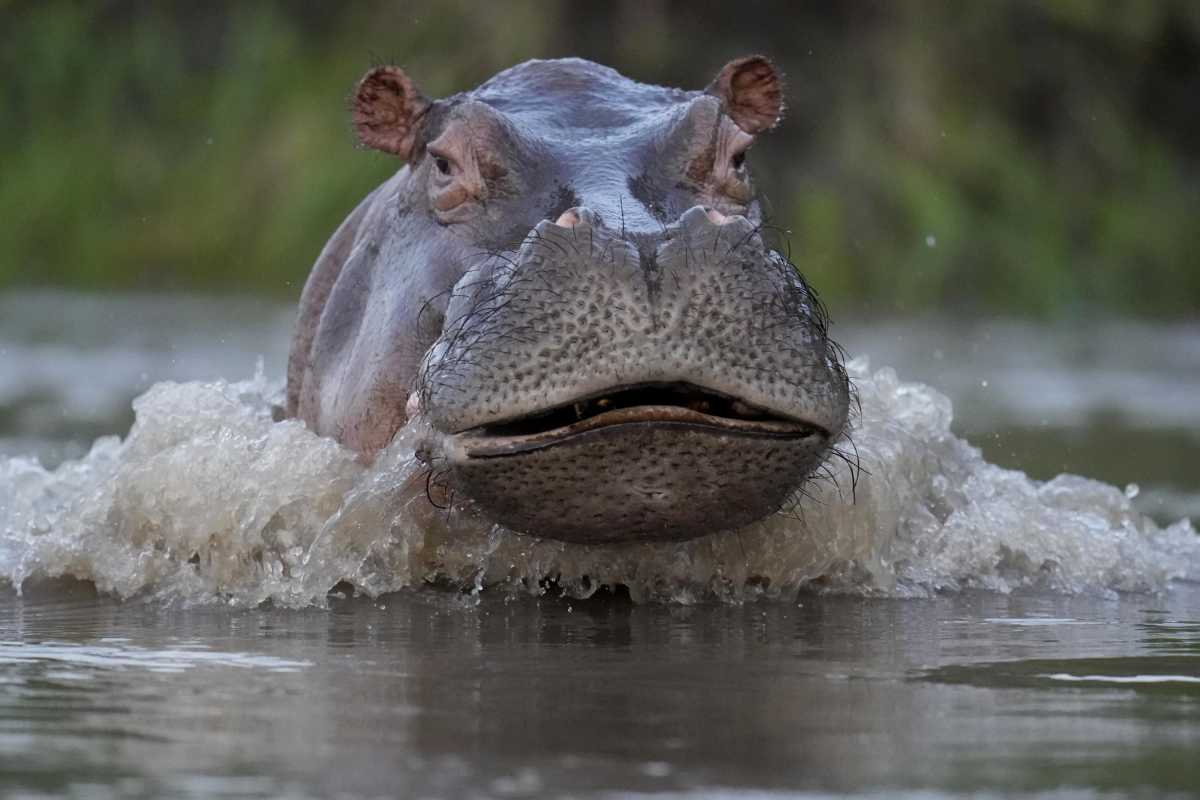News
Colombia’s Hippo Population Poses Environmental Threat, Government Takes Action

In the lush lakes and winding rivers of Colombia, an unexpected threat has emerged – scores of hippopotamuses that are not native to the region. Environmentalists warn that these invasive animals are disrupting the delicate ecosystem, driving away native wildlife, and posing a danger to local communities. Now, the Colombian government is stepping up efforts to tackle the growing hippo population in the area around Doradal, located approximately 170 kilometers from Medellín.
The presence of hippopotamuses, a species native to Africa, in Colombian waterways has attracted attention and concern. These massive creatures, introduced to Colombia by notorious drug lord Pablo Escobar in the 1980s, have thrived in their new environment. Estimates suggest that the hippo population in Colombia has grown to over 80 individuals.
While the presence of these majestic animals may seem enchanting, their impact on the local ecosystem is anything but. Environmentalists point out that the hippos’ voracious appetite and territorial behavior are causing irreparable harm to the lakes and rivers. Native species of fish and plants are being displaced, upsetting the natural balance of the ecosystem.
Furthermore, the expansion of the hippo population poses risks to nearby communities. The animals, known for their aggressive nature, have been involved in several attacks on humans, resulting in injuries and even fatalities. These incidents have raised concerns about the safety of local residents and visitors.
Recognizing the urgency of the situation, the Colombian government has initiated a comprehensive plan to reduce the hippo population. This includes a combination of relocation efforts, sterilization programs, and, as a last resort, euthanasia for individuals deemed too dangerous to be relocated.
The responsible team leading this endeavor consists of dedicated experts in animal behavior, ecology, and biology. Their priority is to ensure the well-being of both the environment and the local communities. The team’s base of operations is in the area around Doradal, where the largest concentration of hippopotamuses can be found.
The government’s efforts have garnered support from local communities and environmental organizations. The shared goal is to restore the ecological balance that these non-native animals have disrupted and reduce the potential risks they pose to human safety.
As the drive to reduce Colombia’s hippo population moves forward, it serves as a reminder of the challenges faced when invasive species enter new environments. It also highlights the critical need for proactive measures to address such threats to both nature and human well-being.












